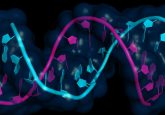A declaration of template-dependence

Template-independent amplification is a major artifact affecting multiple displacement amplification of minute amounts of DNA. A novel modification of this isothermal amplification method now strongly inhibits this artifact.

Multiple displacement amplification (MDA) using phi29 DNA polymerase is an important method for amplifying low quantities of genomic DNA, such as for single-cell genomics studies. Compared to PCR, this isothermal amplification method provides superior template coverage and sequence amplification fidelity.
A major problem with MDA, however, is production of junk DNA by template-independent amplification (TIA), which occurs when using higher concentrations of random hexamers and longer incubations in order to amplify very low quantities of DNA. In the July issue of BioTechniques, researchers at the Saint Louis University School of Medicine led by Adrian Di Bisceglie and Xiaofeng Fan describe their template-dependent MDA (tdMDA) technique, which overcomes this problem. The team tested the ability of various types of primers to suppress TIA and found that random pentamers blocked at the 5´ end with a C18 spacer resulted in the strongest and most consistent suppression of TIA. Using tdMDA, the team was able to carry out transcriptome profiling of circulating RNA in human serum samples.





